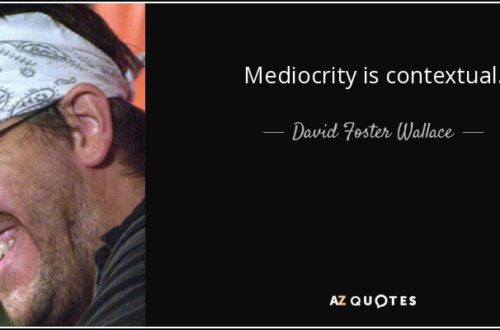Workism is a wonderful term to describe the current religious attitude toward work and career as a site of meaning which many in our society, particularly the younger generation, subscribe to. We have been conditioned by capitalist culture to believe that not only should our working hours pay our bills and feed us but also leave us with feelings of deep spiritual fulfillment and most importantly of having “changed the world”. This is of course a poisonous prescription because the overwhelmingly vast majority of available work does not do these things, trapping people between a metaphysical rock and hard place. Hating your job does not just mean that capitalism sucks, it means that you are an existential failure and your life is without meaning. It’s small wonder we are on the brink of a revolution.
This piece by Derek Thompson for The Atlantic offers some cogent thoughts on this topic, including how as our society has grown less drawn to religion as a central source of meaning in life, capitalism has colonized this sphere as well, placing work above all else and occupying not only our struggle for subsistence, but our hearts and minds as well. He writes:
” One of the benefits of being an observant Christian, Muslim, or Zoroastrian is that these God-fearing worshippers put their faith in an intangible and unfalsifiable force of goodness. But work is tangible, and success is often falsified. To make either the centerpiece of one’s life is to place one’s esteem in the mercurial hands of the market. To be a workist is to worship a god with firing power. ”
– Derek Thompson
One of the major utilities of religion as a source of social control and thereby stability is that it is difficult to disprove. People desperately want meaning, and will accept all kinds of misbehavior as long as it preserves the narrative that their lives are meaningful and that they are part of an ordered and fair universe. Capitalism with it’s wild gyrations, crashes and scorched earth tactics is constantly and vividly confronting us with evidence of the misery it causes. It’s only through constant propaganda and conditioning that we are made to believe that if only we “hustled harder” then we too would be not only rich, but happy and fulfilled. This is a system which is built upon a foundation of misery for the many and happiness for the few, sustained through myths of meritocracy, social mobility and the myth that we could all become enlightened robber barons like Mark Zuckerberg someday.
The downshifting movement on the other hand displaces work from the central focus of our lives and instead asks us to consider potentially how little we need to sustain ourselves and to then imagine what we would do if we stepped off the hamster wheel. It envisions a life in which we are freed from the frenetic and desperate search for meaning which generates a profit and instead asks us to re-imagine what it means to be a human first and an economic actor last. This is potentially the most serious threat to the capitalist order, a denial of participation attack by a generation which has had a culture of consumption weaponized against them. There are many, many knock on effects of this which threaten the current ruling class. For one, when we lift the boot of debt and wage-slave misery from the neck of the 99% they begin to look around for other meaningful activities, like political organizing, regenerative ecology and community building. None of these practices are in the interest of the current system, and in fact serve to directly erode it. When the feedback loop starts, the dam can break quickly, as we saw with the collapse of the seemingly mighty Soviet Union. The collapse of the America-led global capitalist hegemony may come similarly quickly if enough people wake up and realize how directly against their interests it in fact is.





